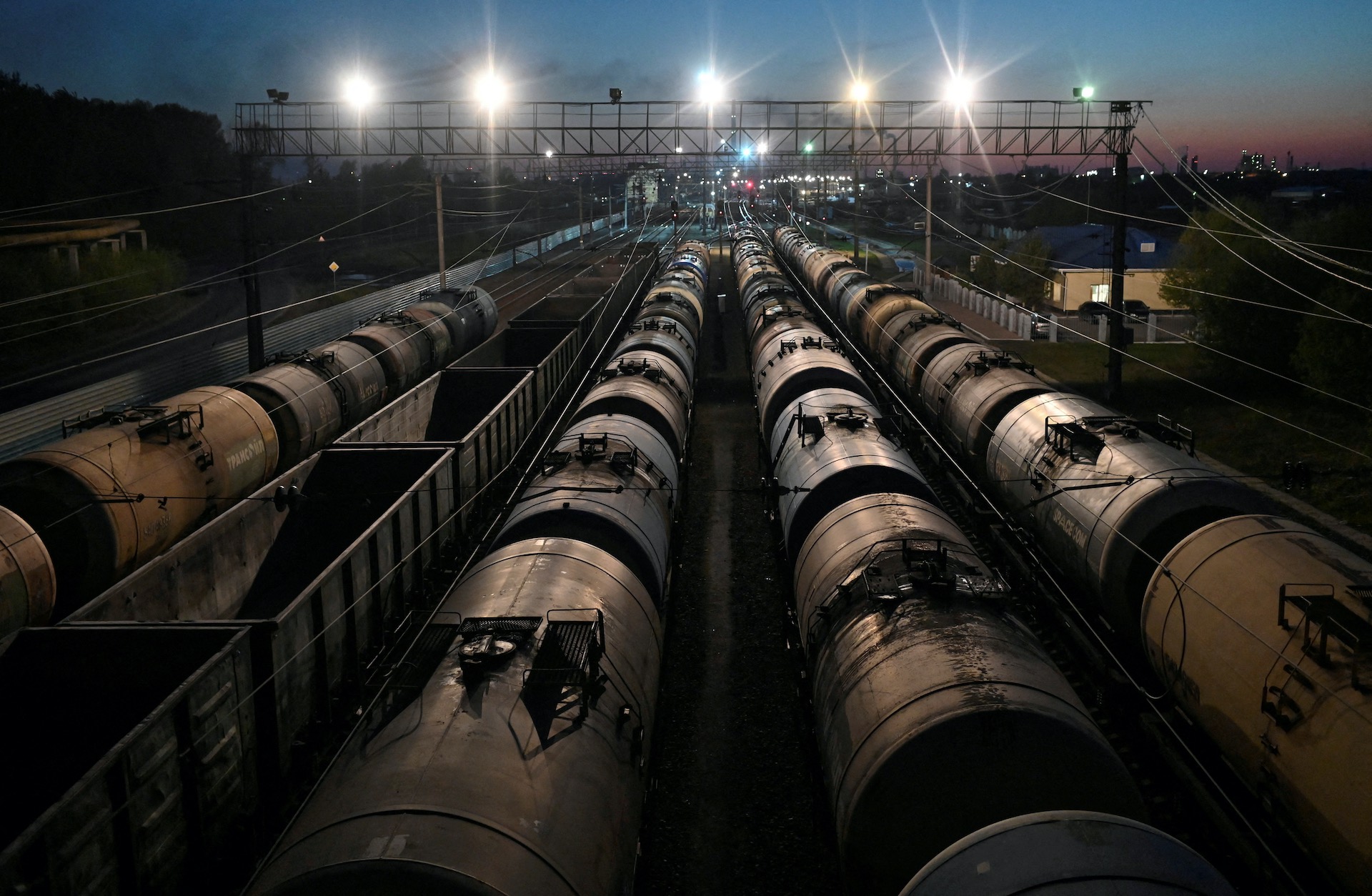China deepens economic ties with Russia as Western sanctions bite
China, the world’s largest oil importer, is laying the groundwork to pipe in Russian crude and other products that the U.S. and Europe are boycotting.

China and Russia appear likely to retain or even enhance economic cooperation. At a Monday press conference, Chinese Ministry of Foreign Affairs Spokesperson Wāng Wénbīn 汪文斌 said, “China and Russia conduct normal economic and trade cooperation on the basis of equality, mutual benefit and mutual respect.”
- P.R.C. spokespersons have consistently repeated this line at press conferences since the invasion, including February 25 (the day after the invasion), February 28, March 21, and March 22.
- Beijing’s rhetoric may be leading to action. The Chinese ambassador to Russia, Zhāng Hànhuī 张汉晖, reportedly told a dozen business heads to “fill the void” left in the Russian market.
- As this Financial Times article on Chinese drone maker DJI illustrates, Beijing (and Chinese companies) will likely calculate the risks and rewards of sanctions adherence, comply when necessary, and try to find workarounds where possible.
- Russia desperately seeks Chinese economic assistance, including for the Power of Siberia-2 (PoS-2) Russia-to-China natural gas pipeline. Despite the enormous uncertainty surrounding the invasion, Gazprom signed a design contract for PoS-2 in the war’s first week.
Oil markets: Russia shuts down westbound CPC volumes
Oil prices are up about 20% since the invasion began on February 24, and by over 40% since early November, when the U.S. first began warning its allies about a potential Russian invasion of Ukraine. Higher oil prices will cause economic pain in China, the world’s largest oil importer. Beijing’s responses to higher commodity prices have been muted, however, even after Russia stoked further tumult in oil markets this week.
- On Monday, Russia announced that damages to the marine terminal of the Kazakhstan-based Caspian Pipeline Consortium (CPC) would take up to two months to repair. The action is removing about 1 million barrels per day from the market. Russia almost certainly closed the terminal to constrict supply, and, unsurprisingly, oil prices jumped by about 5% on Tuesday.
- The Russian government (or oil-linked factions within the Russian elite) may have timed the terminal closure to bolster equities ahead of today’s stock market reopening. Share prices for oil companies Rosneft and Lukoil rose by 17% and 12%, respectively, in the Moscow Exchange’s first trading day since February 25.
- While China directly imports very little oil from Kazakhstan, Chinese oil companies, including the Chinese National Petroleum Company, are heavily invested in the Kazakh oil industry. More importantly, higher world oil prices harm China’s already uncertain growth prospects. Despite China’s enormous interests in the CPC and oil markets, however, its embassies and state media have been silent regarding the terminal closure.
- Beijing may be quietly pressuring Moscow, which is strongly incentivized to consider its larger partner’s interests. On Monday, Russia and Kazakhstan agreed to set up a working group to boost oil transit to China.
- Near-term Kazakhstan-to-China oil flows are constrained by inadequate pipeline export infrastructure. Over the medium term, however, Beijing may be willing to expand oil and gas pipeline linkages with Central Asia and Russia.
- There is an existing Kazakhstan-to-China crude oil pipeline, but its capacity is only 0.4 million barrels per day. Rosneft and CNPC inked a supply deal for half the pipeline’s capacity amid the February 4 Xi-Putin summit.
Central Asian economic (and political?) instability
Russia’s implicit embargo on Kazakh oil will further batter Central Asia, which is already reeling from the collapse of the ruble and cratering remittances. Kazakhstan experienced economic protests at the beginning of the year, when conditions were better. China has tried to avoid stepping on Russia’s toes in Central Asia, and it’s worth remembering that the region is a tertiary priority for the major powers to its north and east. Still, Beijing may find it necessary to provide substantial political and economic assistance to Central Asian countries, or accept greater risks along its western border.
Joe Webster edits the China-Russia Report, an independent, nonpartisan newsletter covering political, economic, and security affairs within and between China and Russia.






